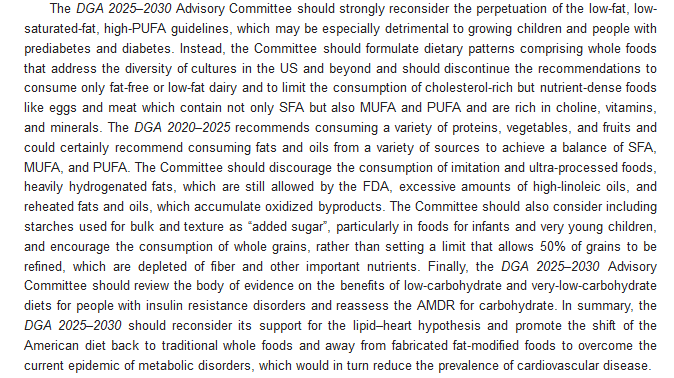Full title of this study/paper is the following:
“The Lipid–Heart Hypothesis and the Keys Equation Defined the Dietary Guidelines but Ignored the Impact of Trans-Fat and High Linoleic Acid Consumption”
The lead author is one I’ve heard on multiple podcasts, advocating for using MCT and coconut oil (along with a keto diet if possible) for people with Alzheimer’s and/or dementia.
The study/paper is here. It’s quite long.
In one of the podcasts with her, she said she wanted to get this paper out before the US dietary guidelines are issued again, and here’s her broadside to the US dietary guidelines:

By the way, this is a great discussion with her:
They also discuss infections and Alzheimer’s, and I’m beginning to reach the conclusion that infections are MUCH more relevant for things like Alzheimer’s/Dementia, heart disease, and mental health than perceived.

